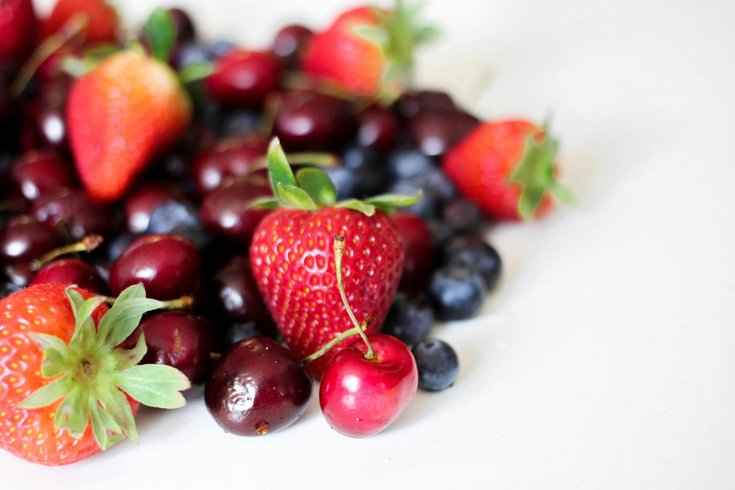
January 16, 2024
 Jane Doan/Pexels
Jane Doan/Pexels
Eating foods with antioxidants like zinc, selenium, carotenoids and vitamins A, C and E can reduce the risk of stroke, according to a new study.
Eating lots of antioxidant-rich foods like berries, spinach and kale could lower your risk of stroke, according to new research.
In a study published last week, Chinese scientists sought to determine whether antioxidants had a "protective effect" against stroke through two analyses. They examined data from 24,892 U.S. residents and found that their risk of stroke decreased by 3.4% for each increase on a scale designed to measure the amount of selenium, zinc, carotenoids and vitamins A, C and E in a person's diet.
People who had genetically determined levels of selenium or retinol, a form of vitamin A, seemed to have a degree of protection against one form of stroke, subarachnoid hemorrhage, but not intracranial hemorrhage or ischemic stroke.
Most strokes are ischemic strokes, which occur when the blood supply to the brain is cut off or partially obstructed. Subarachnoid and intracranial hemorrhages, conversely, are brain bleeds. The former occurs between the brain and skull, while the latter happens within the brain tissue.
The researchers concluded that "evidence suggests that diet-derived antioxidants may reduce the risk of stroke," but that more studies are needed to understand how antioxidants protect against the condition.
This study, published in the European Journal of Medical Research, is the latest in a growing body of evidence suggesting antioxidants may help prevent stroke. Research published in 2018 found a similar relationship between vitamin E and stroke risk, while another study from 2021 concluded that zinc concentration was inversely associated with incidence of ischemic stroke, especially among women.
Researchers caution, however, that a supplement may not be the solution. The most recent study reported that the protective effect of the antioxidants reversed at a certain point, while a 2012 study showed that daily multivitamin use did not reduce major cardiovascular events among men.
Instead, the scientists encourage changes in diet. Plant-based foods, particularly fruits and vegetables, tend to be higher in antioxidants than meat and other animal-based products. According to the U.S. Department of Agriculture, some of the most antioxidant-dense foods include prunes, raisins, plums, Brussels and alfalfa sprouts, oranges, broccoli, beets, red grapes, red bell peppers, cherries, corn, onions and eggplant. Dark chocolate, pecans and walnuts are also good sources of these nutrients, as are spices such as cloves and rosemary.
Follow Kristin & PhillyVoice on Twitter: @kristin_hunt
| @thePhillyVoice
Like us on Facebook: PhillyVoice
Have a news tip? Let us know.